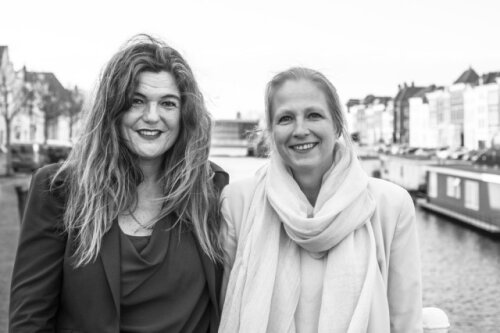Best Same Sex & LGBT Lawyers in Middelburg
Share your needs with us, get contacted by law firms.
Free. Takes 2 min.
Free Guide to Hiring a Family Lawyer
List of the best lawyers in Middelburg, Netherlands
About Same Sex & LGBT Law in Middelburg, Netherlands
The Netherlands is one of the most developed legal environments in the world for Same Sex & LGBT rights. Middelburg, as the capital of the province Zeeland, follows national Dutch law and municipal practice. National protections include legal same-sex marriage, the ability for same-sex couples to adopt, and general anti-discrimination provisions. Local municipal offices in Middelburg handle civil registrations, such as marriages, registered partnerships, births and changes of personal data. While national law sets the framework, practical access to services - for example specialized healthcare or community support - can vary by region, so residents in Middelburg may rely on both provincial resources and national organisations for support and legal information.
Why You May Need a Lawyer
People in Same Sex & LGBT situations may need legal help in a variety of circumstances. A lawyer can provide specialist advice, represent you in negotiations or court, and help secure your rights under Dutch law. Common reasons to consult a lawyer include family law matters like marriage, divorce or child custody; establishing legal parentage after assisted reproduction or surrogacy; changing your legal name or gender marker; workplace discrimination or harassment; criminal matters such as hate crimes; housing discrimination; and disputes with public authorities over registration or benefits.
Lawyers can also advise on procedural steps, deadlines and the documentation you need, and they can help you apply for subsidised legal aid if you do not have funds to pay privately.
Local Laws Overview
Key legal points relevant to Same Sex & LGBT people in Middelburg are driven primarily by national Dutch law, combined with municipal implementation:
- Marriage and registered partnership: Same-sex marriage has been legal across the Netherlands since 2001. Couples may marry or enter a registered partnership at the municipal civil affairs office - Burgerzaken - in Middelburg.
- Parenthood and adoption: Same-sex couples can adopt and pursue parentage rights. Procedures for joint and second-parent adoption are available under the Dutch Civil Code, and assisted reproduction is accessible according to national health regulations and clinic policies.
- Legal gender and name change: Changing your legal name and gender marker is handled through municipal procedures. National reforms have aimed to make legal recognition easier, but specific procedural requirements and documentation are handled by the municipality.
- Anti-discrimination and criminal law: The Dutch constitution and anti-discrimination laws protect against unequal treatment on the basis of sexual orientation and gender identity. Criminal law covers harassment, threats and violence. Complaints can be made to the police and to human rights bodies.
- Healthcare: Transgender and gender-diverse people access specialised gender-affirming care through designated clinics and hospital programs. Waiting times and referral requirements can vary regionally.
- Surrogacy and cross-border issues: Surrogacy is legally complex in the Netherlands. Commercial surrogacy is problematic under Dutch law and establishing legal parentage after surrogacy often requires specific legal steps. Cross-border family issues, such as recognizing foreign parentage or marriages, may require legal advice.
Frequently Asked Questions
Can same-sex couples get married in Middelburg?
Yes. Same-sex marriage is legal throughout the Netherlands. You should make an appointment with the Middelburg municipal civil affairs office - Burgerzaken - to register your intention to marry and to complete the required formalities. The municipality will explain documents you must submit, possible waiting periods and the ceremony arrangements.
How can we establish parentage if we use donor sperm or IVF?
Parentage after assisted reproduction depends on the method used and whether a formal legal step is taken. In many cases, a non-biological parent can obtain parentage by means of a second-parent adoption or other procedures under the Civil Code. Fertility clinics and municipalities can explain practical steps, but you should consult a family law lawyer to plan the procedure before treatment to ensure parental rights are secured.
Is surrogacy allowed and how do we get legal parentage?
Surrogacy in the Netherlands is legally sensitive. Commercial surrogacy is generally prohibited and altruistic surrogacy involves strict conditions. Establishing legal parentage after surrogacy usually requires formal legal actions, such as adoption or a court procedure. If you are considering surrogacy - domestic or cross-border - speak with a lawyer experienced in family and international private law early to understand risks and the steps needed to secure parentage.
How do I change my legal name and gender marker in Middelburg?
Requests to change your name or gender marker are processed through the municipality. Requirements can change over time, and applications may require specific documentation. Because procedures differ and may involve medical or administrative steps, consider contacting Burgerzaken in Middelburg for current local instructions and speak to a lawyer or an advocacy organisation if you need assistance preparing the application or appealing a decision.
What protections exist if I face discrimination at work because I am LGBT?
Dutch law prohibits discrimination on the grounds of sexual orientation and gender identity. If you experience discrimination or harassment at work, you can raise the issue with your employer, file a complaint with a works council or union, and make a formal complaint to the College voor de Rechten van de Mens. A lawyer who specialises in employment law can advise on remedies, damages and possible claims before the subdistrict court.
Who do I contact if I am the victim of a hate crime or harassment?
If you are in immediate danger, contact the police. For threats, harassment or violent incidents, the police can take action and create a report you can use in follow-up legal or civil actions. You may also report discrimination to the municipal authority and to national bodies that advise on human rights. Keep all evidence - messages, emails, witness names - and consult a lawyer if you want to pursue civil claims or criminal reporting.
Can same-sex couples adopt children in the Netherlands?
Yes. Same-sex couples have the same adoption rights as opposite-sex couples under Dutch law. There are procedures for joint and second-parent adoption. Adoption can be domestic or international, and international adoption involves additional rules and checks. Legal advice helps you understand eligibility, timelines and the administrative steps required.
How do I find affordable legal help in Middelburg?
If you cannot afford a lawyer, you may qualify for subsidised legal aid through the national legal aid system - Raad voor Rechtsbijstand. You should contact a lawyer or the legal aid service to check eligibility. Some lawyers also offer a first consultation at a reduced rate or operate on contingency in particular case types. Additionally, local or national LGBT organisations can point you to pro bono or low-cost legal support.
What should I do if a municipality refuses to recognise a family status or registration?
If a municipal office refuses a registration or recognition you believe is required by law, ask for the decision in writing and the legal basis for the refusal. You can file an objection with the municipality and, if necessary, a petition at an administrative court. A lawyer with experience in administrative law can help you prepare the objection and, if needed, represent you in court.
Are there special considerations if one partner is from another country?
Cross-border issues are common - for example when partners have different nationalities, or when you seek recognition of a foreign marriage, registered partnership, parentage or residency. Immigration, recognition and parentage questions intersect with family law. You should consult a lawyer experienced in immigration and family law to address residence permits, the recognition of parental rights and document translation or apostille requirements.
Additional Resources
Below are organisations and public bodies that can help with legal and practical questions in Middelburg and the Netherlands.
- Middelburg municipal civil affairs office - Burgerzaken - for registrations of marriage, partnership, birth, name and gender marker changes.
- Raad voor Rechtsbijstand - national body for subsidised legal aid and information on legal costs.
- College voor de Rechten van de Mens - independent body for complaints about discrimination and information on equal treatment.
- COC Nederland - national LGBT organisation that provides information, local contacts and advocacy.
- Police - for reporting crimes, threats and hate incidents.
- University medical centres and specialised gender clinics for information about gender-affirming healthcare and referrals.
- Local social services and mental health providers - for support with wellbeing, family issues and referrals to legal assistance.
Next Steps
If you need legal assistance in Same Sex & LGBT matters in Middelburg, use the following checklist to proceed:
- Identify the legal area involved - family law, employment, criminal, administrative or immigration - so you can find a lawyer with relevant experience.
- Contact Middelburg Burgerzaken for immediate civil registration needs and to learn the local documentation requirements.
- Gather important documents - ID, birth certificates, marriage or partnership certificates, medical records, correspondence and any evidence of discrimination or incidents.
- Check if you qualify for subsidised legal aid through the Raad voor Rechtsbijstand or have legal expenses insurance that covers legal help.
- Reach out to an LGBT advocacy organisation for guidance, referrals and emotional support during the legal process.
- Arrange an initial consultation with a specialised lawyer. Prepare clear questions, a timeline of events and copies of relevant documents.
- If there is an immediate safety concern, contact the police and seek protective measures before starting other legal steps.
Legal situations can be complex and time-sensitive. Consulting a lawyer early will help you understand your rights, options and likely timelines so you can make informed decisions.
Lawzana helps you find the best lawyers and law firms in Middelburg through a curated and pre-screened list of qualified legal professionals. Our platform offers rankings and detailed profiles of attorneys and law firms, allowing you to compare based on practice areas, including Same Sex & LGBT, experience, and client feedback.
Each profile includes a description of the firm's areas of practice, client reviews, team members and partners, year of establishment, spoken languages, office locations, contact information, social media presence, and any published articles or resources. Most firms on our platform speak English and are experienced in both local and international legal matters.
Get a quote from top-rated law firms in Middelburg, Netherlands — quickly, securely, and without unnecessary hassle.
Disclaimer:
The information provided on this page is for general informational purposes only and does not constitute legal advice. While we strive to ensure the accuracy and relevance of the content, legal information may change over time, and interpretations of the law can vary. You should always consult with a qualified legal professional for advice specific to your situation.
We disclaim all liability for actions taken or not taken based on the content of this page. If you believe any information is incorrect or outdated, please contact us, and we will review and update it where appropriate.









